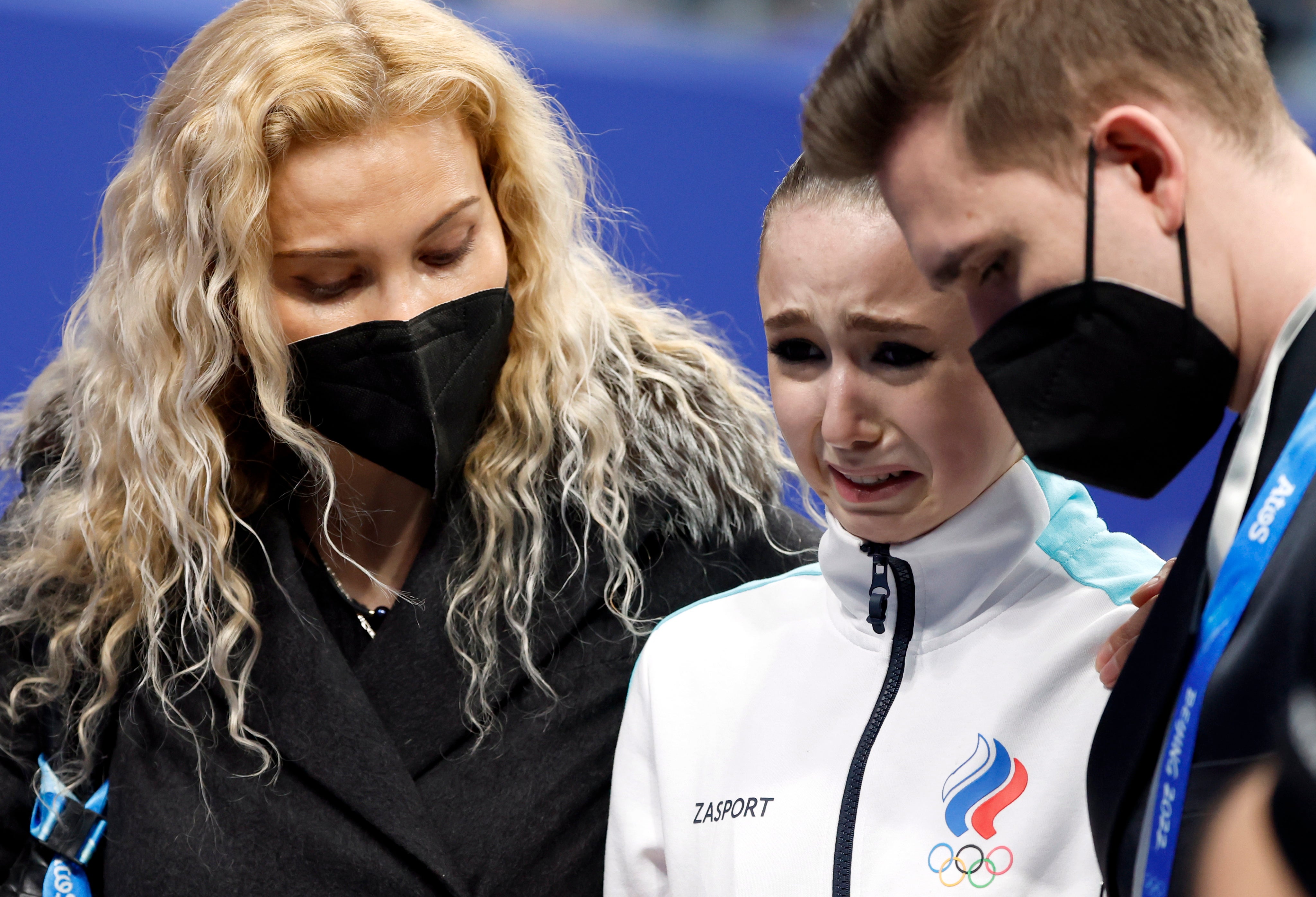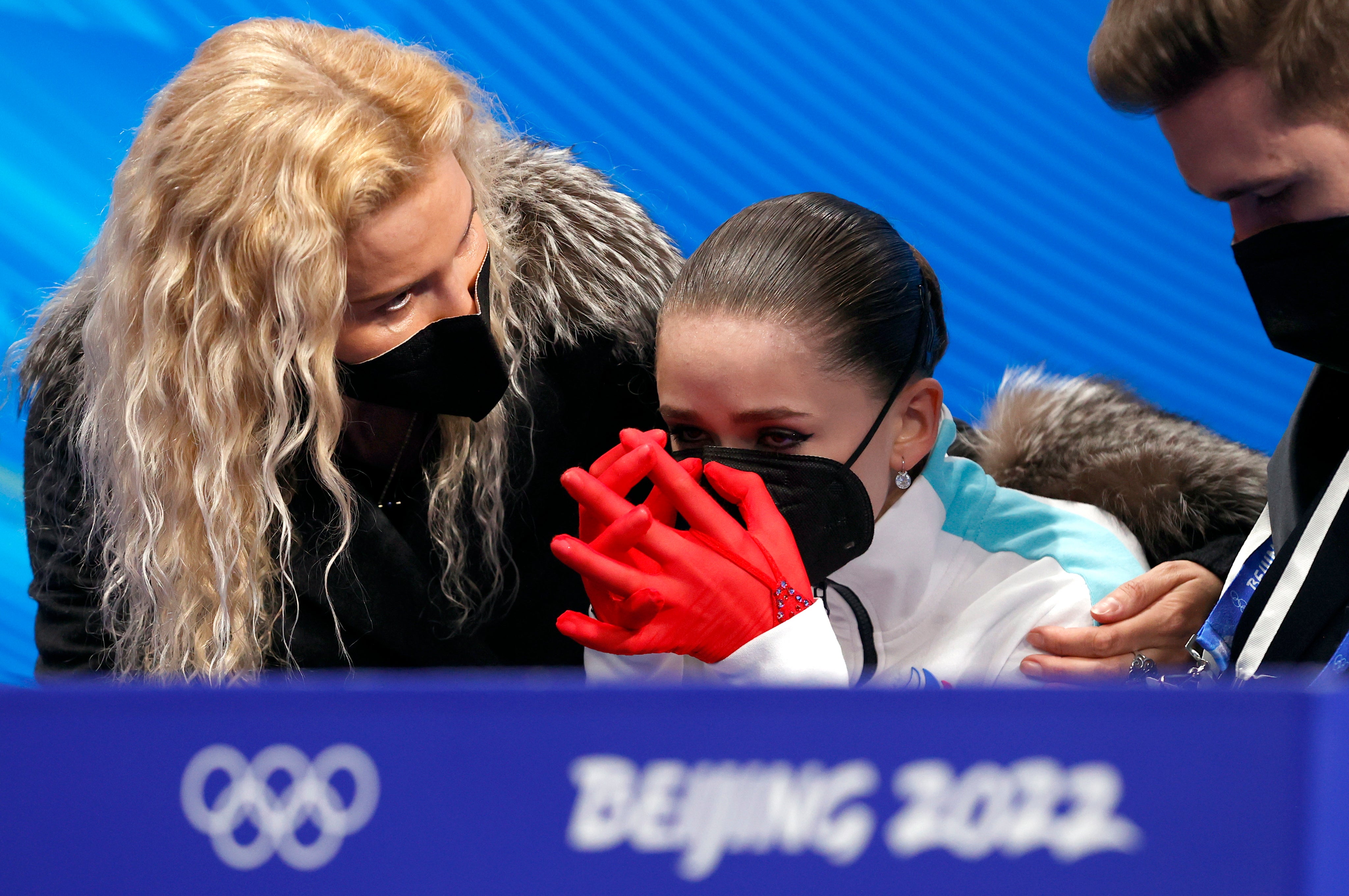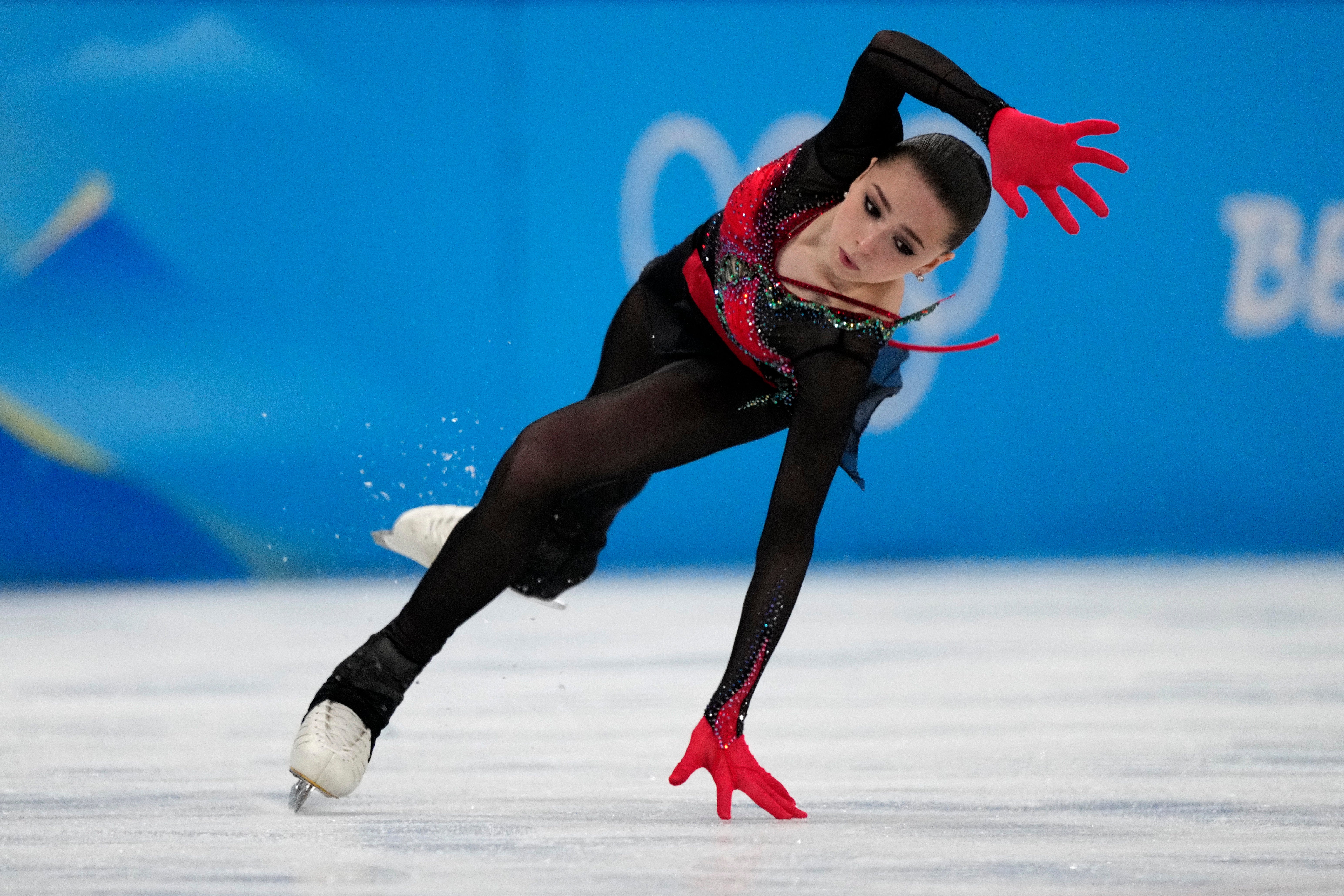
Olympic boss Thomas Bach said he was disturbed and chilled watching the treatment of Kamila Valieva and has called for an investigation into her controversial coach Eteri Tutberidze.
For a man prone to talking in carefully scripted diplomatic soundbites, Bach took off the gloves and came out swinging hard, in a press conference that seasoned Olympic observers hailed as unprecedented.
Russian skater Valieva - just 15 - has been the face of these Games for all the wrong reasons.
Arriving as hot favourite for women’s figure skating, she finished fourth last night - following a stuttering routine - just days after the International Olympic Committee lost an appeal to stop her competing following a positive drugs test.
Broken and lost, she then received not a hug of consolation from a scowling Tutberidze but a hostile inquisition, in full glare of a disbelieving TV audience.

“I was very disturbed when I watched the competition on TV,” said Bach.
“When I saw how she was received by her entourage with what appeared to be a tremendous coldness, it was chilling to see this, rather [than] giving her comfort or help.
“You could feel the chilling atmosphere, this distance and if you were interpreting the body language it got even worse. It was dismissive. How can you be so cold to your athlete?
“This was no way to treat a 15-year-old under such mental stress. I wish she has the support of her friends and family to help her through this difficult situation.
“I saw the pressure on her, it was beyond my imagination for a girl of 15. To see her struggling, trying to compose herself, you could see the immense mental stress she was under.”

Valieva tested positive for banned substance trimetazidine in December, a drug commonly used to treat angina which experts say can enhance endurance by increasing blood flow to the heart.
She was cleared to compete by the Court of Arbitration for Sport because of her minor status but, crucially, not cleared of doping, with that case scheduled to be heard in the months ahead.
However, Bach could barely hide his fury about the behaviour of her entourage, demanding an immediate investigation.
Tutberidze also coaches women’s figure skating gold and silver medallists Anna Shcherbakova and Alexandra Trusova and will be rinkside today with other charges, Evgenia Tarasova and Vladimir Morozov, among the medal favourites in the pairs competition.
“There is a 15-year-old girl with a drug in her body that shouldn’t be there. The ones that administered it to her, these are the people that are guilty,” he added.
“It’s of extreme importance to open an investigation into her entourage. We’ve expressed this from the very beginning. She’s a minor. Doping very rarely happens alone, there is always an entourage.
“We have extremely limited means to address athletes’ entourages, we are not the police, we cannot interrogate. We need the support of governments.”

However, how much support the IOC and partners receive from Russian authorities is open to question. Athletes from the country have not been able to compete under their own flag at the last four Games following a damning report that revealed state sponsored doping at the 2014 Sochi Games.
And the ranks are already closing around Tutberidze, whose Sambo-70 school in Moscow has long been subject to reports of young skaters being pushed beyond breaking point.
Bach defended the IOC’s part in the story that has dominated these Olympics, insisting they’d tried and failed to prevent the teenager from competing, as soon as they learned about her failed doping test.
And he hinted he wanted to see minors prevented from appearing at future Games. Tutberidze coached Alina Zagitova, also 15, to gold in 2018, though she’s since quit the sport, citing injuries and a lack of motivation.
“We challenged the decision to allow Kamila Valieva to compete, we didn’t want her to participate. We lost that case and we need to respect that rule of law,” added Bach.
“There are issues to be addressed, this concerns the issue of minors in senior competitions. Our executive board have started to think about it, this needs careful deliberation and consultation.
“For me personally, the anti-doping is there to ensure fair competition. In a fair competition the same rules must apply to everyone, how can this be achieved while respecting the special circumstances of athletes being minors? This will be a discussion for the future, it will be followed up.”
Watch All the Olympic Winter Games Beijing 2022 live on discovery+, Eurosport and Eurosport app







